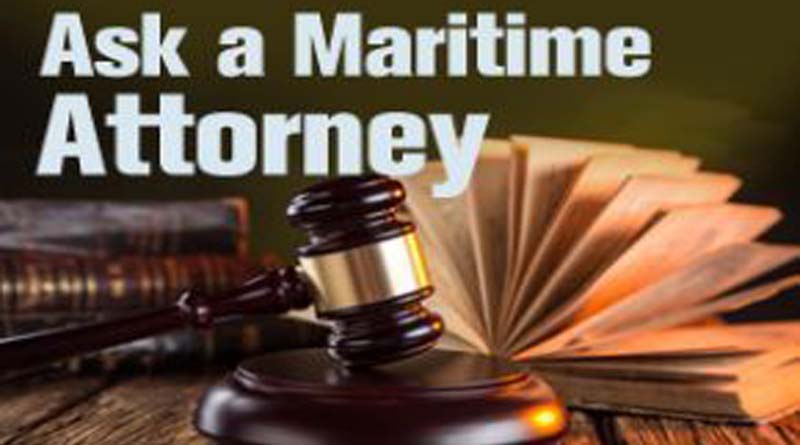Ask A Maritime Attorney: Can I sue for wake damage done to my property?
Question
I own a waterfront home on the Sacramento Delta, and my boat and dock have been damaged several times by the wakes from passing boats. I am not sure if the area has a speed limit, but is there some kind of universal speed limit for boats when they are around a dock? On one occasion my boat was damaged at my dock by the wake from a law enforcement boat. Are they subject to the same rules as everyone else? Can I sue them for the damage?
Answer
Certain sections of any navigable waterway may be governed by a speed limit established by the local community, and those speed limits must be prominently posted on a sign or buoy. Speed limits on California waterways are also established by state law, most notably California Harbors and Navigation Code section 655.2, which sets a five mile-per-hour speed limit within certain areas. In this case, our reader may find some relief under section 655.2(2) which restricts the speed of a passing boat to five miles per hour when it is within 200 feet of a dock with boats secured to it.
Unfortunately for our reader, law enforcement boats are exempt from section 655.2 and from any posted local speed limits if they are engaged in law enforcement activities and displaying their emergency lights. And, similar to a speed limit ashore, a speeding boat is only cited if the operator is actually caught speeding. Based on our reader’s question, it appears that none of these speeding boats have been cited for anything, so he is looking for a private remedy or a private cause of action in a lawsuit that will allow him to solve the problem without waiting for the authorities.
All boats are responsible for their own wakes, and the owner of property that has been damaged by a wake will in most cases have a legal claim against the owner and the operator of the offending boat. This is true even if the offending boat is a law enforcement boat, but the owner of the damaged boat will need to comply with a series of complicated procedural rules if he wants to bring a legal claim against a law enforcement agency. In any case, our reader may have a claim if he is able to determine the identity of the offending boat owner and operator, but identifying the culprit will not, by itself, solve his problem.
Our reader will also need to prove that the damage was caused by the wake and that it was not existing damage caused by something else. Failure to document or establish the pre-incident condition of the damaged boat does not preclude a claim for damage, but the damage caused by the offending wake will nonetheless need to be established somehow. Eyewitness testimony, for example, could be used if a witness actually saw the impact or other cause of the damage. Or, a recent pre-incident survey or inspection may be used to establish a baseline condition of the boat or dock.
The bottom line for our reader is that he has no private right to enforce a regulatory ordinance such as speed limit. Enforcement can only be performed by a sworn peace officer. But in general – yes – vessels are responsible for their wakes and damage caused by their wake, even where there are no regulations or restrictions concerning vessel speed limits. As such, our reader probably does have a civil claim against the owners and operators of the boats that have damaged his boat and dock, assuming he can identify them and prove that they caused the damage. I am, of course, unable to offer more specific advice without knowing a lot more about the case.
David Weil is licensed to practice law in the state of California and as such, some of the information provided in this column may not be applicable in a jurisdiction outside of California. Please note also that no two legal situations are alike, and it is impossible to provide accurate legal advice without knowing all the facts of a particular situation. Therefore, the information provided in this column should not be regarded as individual legal advice, and readers should not act upon this information without seeking the opinion of an attorney in their home state.
David Weil is the managing attorney at Weil & Associates (www.weilmaritime.com) in Seal Beach. He is certified as a Specialist in Admiralty and Maritime Law by the State Bar of California Board of Legal Specialization and a “Proctor in Admiralty” Member of the Maritime Law Association of the United States, an adjunct professor of Admiralty Law, and former legal counsel to the California Yacht Brokers Association. If you have a maritime law question for Weil, he can be contacted at 562-799-5508, through his website at www.weilmaritime.com, or via email at dweil@weilmaritime.com.


